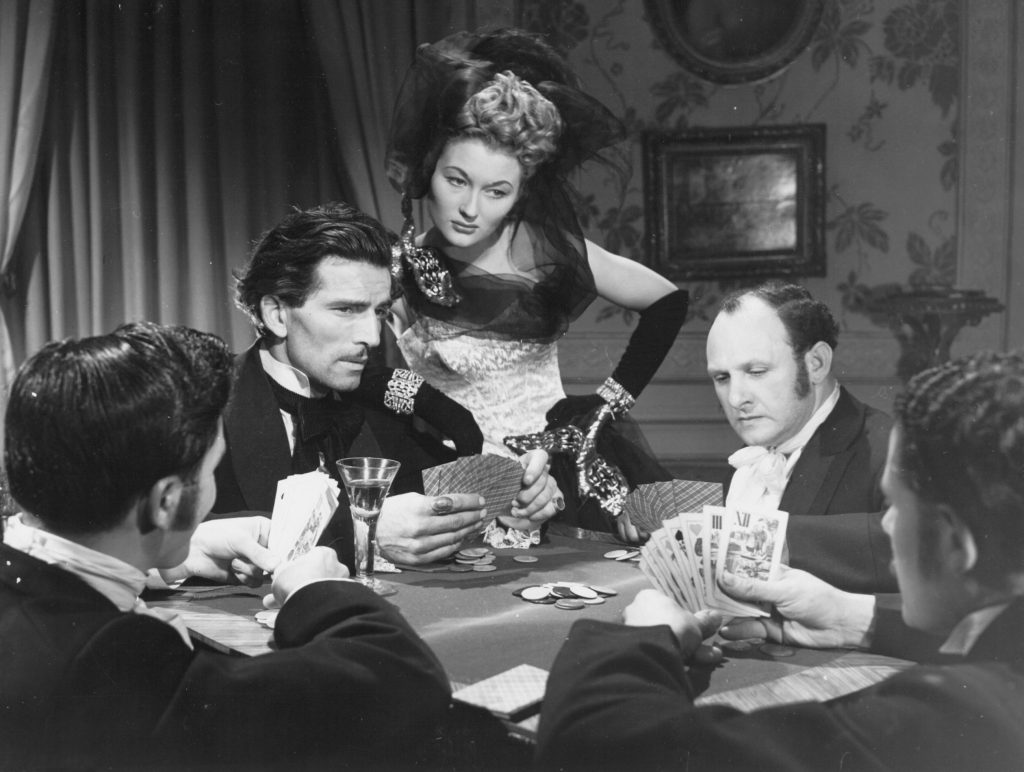A New Year Day’s dozen

John Wyver writes: a heavy between times cold prevented a posting last Sunday, and travel to Italy (more on that to come) may interfere with one for next (although I’m aiming still to keep up the early television OTDs), so here’s a selection at the end of the holidays, drawing together as usual stuff (and avoiding politics) that has intrigued and interested me recently.
• Britain’s first blonde bombshell: celebrating the centenary of Christine Norden: a lovely short BFI tribute by Jo Botting to a leading femme fatale of post-war British cinema; above, Norden as Cora Pearl in Idol of Paris, 1948.
• Print the legend: I’m a big fan of James Mangold’s forthcoming Dylan biopic, A Complete Unknown, and this Ronald Radosh essay for Quillette is pretty much the best response I’ve seen so far; and here’s the trailer:
• Rod Serling on doomsday: Carly Mattox for Mubi.com marks (very well) the centenary of the creator of The Twilight Zone.
• No longer old, no longer grey – The story of Whistle Test. (Part One): the first of a monumental five-part series by Tim Dickinson about The Old Grey Whistle Test, but more broadly about studio production culture at the BBC in the 1970s and ’80s; an astonishing achievement of detailed research, which I’m very grateful to my friend Billy Smart for recommending.
• Netflix’s The Perfect Couple and the reason TV was so poor in 2024 – but we watched anyway: for BBC Culture, Laura Martin is very good on the mediocrity of ‘Mid TV’.
• Provocation: An agenda for the future of TV studies: Technology, audiences, stakeholders: a bracing (and open access) Critical Studies in Television essay by Catherine Johnson proposes a way forward; as the abstract states, the article
argues that the technological consequences of shifting to internet-delivered television demand new theorisations of television as software, new digital tools and methods, and audience research that pays more attention to less engaged and unconnected audiences. Such research would ensure that critical policy decisions about the future of television draw on the depth of expertise within TV studies as a discipline.
• Closing out a busy year: Jason Mittell is a US media studies academic whose work I have followed, and benefitted from, for many years, and it’s good to see him returning to his invaluable blog (is this a trends?) to lay out his own agenda for future work.
• The 20 most powerless people in the art world: 2024 edition: a very fine Hyperallergic antidote:
Ours is the opposite of silly ‘power’ lists that reflect publications’ marketing budgets, editorial starfucking, and the priorities of their oftentimes billionaire owners. We’re interested in those left in the shadows of the powerful. That’s where the real stories begin, where the future is decided, where creativity conquers challenges that seem insurmountable, and where the future is decided.
• Arlene Croce elevated dance criticism with style and daring: the New York dance world was a universe away from my own in the 1970s and ’80s, but I vividly recall reading and admiring columns for The New Yorker by Arlene Croce, who has died at the age of 90; this is an elegant New York Times appraisal [gift link] by Elizabeth Kendall – see also the paper’s obit [ditto] by Brian Seibert.
• Retracing Sylvia Plath’s visit to a Yorkshire pub: this is such a lovely essay by Dave Haslam about poetry and memory and mental health and landscape and going to the pub.
• Building a space in which to learn how to learn.: Christopher Smith, Executive Chair, Arts & Humanities Research Council, is excellent on the crisis in the humanities in UK higher education – and what must be done to make changes; see also his equally good Future proofing the present through the past.
• Twinge of saudade: Chal Ravens on ABBA for the LRB [£, limited free access] is great, and is the perfect set-up for…
• And finally…
Leave a Reply